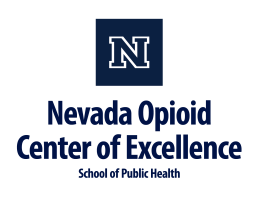Kratom is a complex botanical with both opioid-like and stimulant properties, increasingly used in the U.S. for self-management of pain, as an opioid substitute, and for various mental health symptoms. While traditionally consumed for centuries in its natural form in its indigenous regions, commercially available kratom products in the U.S. are often variable in composition and potency, posing a greater risk of toxicity. Additionally, kratom use can lead to dependence, withdrawal, and in some cases, meet DSM-5 criteria for a substance use disorder.
With kratom use and harms being more common among individuals with substance use disorders, addiction psychiatrists must be equipped to assess and manage patients who consume kratom—whether for perceived therapeutic benefits or as part of an addictive pattern.
This workshop will provide an in-depth overview of kratom’s pharmacology, patterns of use, and the evolving regulatory landscape. Attendees will gain insight into how kratom differs from traditional opioids, its potential for addiction, and the complexities of withdrawal management. Practical strategies for patient engagement, harm reduction, and evidence-based treatment approaches will be discussed, with a focus on real-world clinical scenarios.
By the end of this session, participants will have a clearer understanding of how to navigate kratom-related clinical challenges, including how to approach patients who consume kratom, recognize problematic use and addiction, and determine appropriate treatment interventions.
Learning Objectives:
- Understand kratom’s literature, covering its uses, risks (overdose, addiction), and product toxicities.
- Evaluate kratom’s role in harm reduction, distinguishing between evidence-based practices and misconceptions.
- Implement evidence-based treatments for kratom addiction, facilitating informed discussions and effective interventions with patients.
Presented by: Cornel N. Stanciu, M.D., C.P.E., M.R.O., F.A.S.A.M., F.A.P.A.
Dr. Stanciu holds the position of Assistant Professor at Dartmouth’s Geisel School of Medicine and serves as the Director of Addiction Services at New Hampshire Hospital.
His accolades include being a former Ruth Fox scholar and Governors Institute on Substance Abuse scholar. He was appointed by New Hampshire’s governor to the Board of Medicine, Medical Review Subcommittee, and by the DHHS’s commissioner to the state’s Therapeutic Cannabis Medical Oversight Board. Additionally, he holds esteemed credentials as an ASAM and APA Fellow.
Throughout his distinguished career, Dr. Stanciu has been actively engaged in academia, with a significant publication record on topics related to addictive disorders. He has led multiple studies focused on understanding the clinical implications of Kratom and has contributed to the development of treatment guidelines for Kratom addiction. His research findings have been disseminated through presentations at numerous conferences, live webinars, and citations in scholarly literature. He serves on the editorial boards of several reputable journals and has received numerous awards for excellence in research and clinical care.
Dr. Stanciu maintains active involvement in professional organizations such as the APA, ASAM, and AAAP, where he presently serves as the Chief Editor for AAAP’s newsletter.
Furthermore, his commitment to advancing knowledge in the field is evident through his publication of the book titled “Deciphering the Addicted Brain: A Guide to understanding and Helping a Loved One Towards Recovery”.
Continuing Education Units: 1 CEU
This training is approved for continuing education by the boards listed here.
Funding for this activity was made possible in whole or in part by the Nevada Department of Health and Human Services (DHHS) Director’s Office through the Fund for a Resilient Nevada, established in Nevada Revised Statutes 433.712 through 433.744. The opinions, findings, conclusions, and recommendations expressed in our courses are those of the author(s) and do not necessarily represent the official views of the Nevada Opioid Center of Excellence or its funders.

